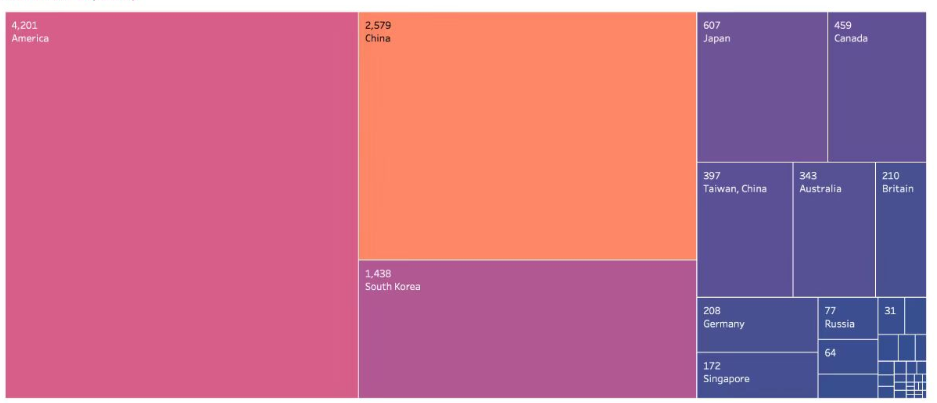Blockchain
Blockchain tech allows open-sourced devs earn real profits

Over the last few years, the number of patent applications filed for blockchain technology has been on the rise globally, with the U.S dominating the charts. According to reports, the notable patent filers in the blockchain technology space have been banks. But, don’t patents question the very existence of blockchain? A technology that is supposed to be open, permissionless and transparent?
Along the same lines, James Gong, the Co-founder of LongHash, has said that “patents go against the spirit of blockchain technology.” In the latest LongHash post, Gong stated,
“Major public blockchains like Bitcoin and Ethereum are open source, and would obviously not apply for patents. Instead, they will put code on web sites like Github, so everyone can access it for free.”

Source: LongHash | Number of Blockchain Patents secured by different countries/region
According to the Co-founder, principles like being open and transparent are “prerequisites” for a system that allows everyone to participate with mutual trust. The challenge, however, is to make money out of it. He further said that due to meager returns, the open-source community generally seeks a “laboratory for geeks.” Gong stated,
“One typical example is that only a small group of volunteers are maintaining the OpenSSL security protocol on the Internet. Each year the OpenSSL project receives about $2000 in donations. This spare resources likely contributed to Heartbleed, a major security flaw that spurred companies like IBM, Intel, Microsoft, Facebook and Google to pledge funding for open-source.”
Open source is a key component of the fast development of the blockchain industry and, on the upside, the technology allows open source developers to earn real profits. When a certain technology is identified as a significant one, a community backing it also emerges. The more attractive the technology, the more people will identify and join the community. And according to the Co-founder, this will make the “consensus mechanism stronger.” Elaborating on the same, Gong said,
“You can’t simply fork the code of a blockchain to create another Bitcoin of equivalent value. You must win the consensus of the community, which represents the true value of open-source software. In that sense the core competitiveness of blockchain technology lies in consensus, not code. “

